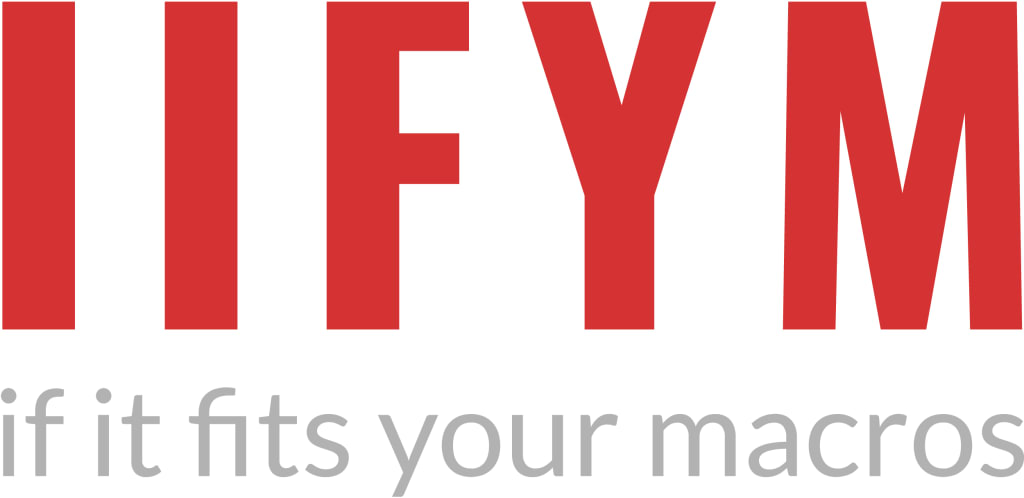How to Eat Anything and Stay Healthy?
Is it possible to eat 'junk' food and be healthy?

"Whoa! How can I eat burgers and stay healthy..? Is it even possible? Come on, man, there is nothing better for your health than salads!" - Random dude I talked with at the gym
There is no such thing as a perfect diet and restricting some foods may be as detrimental to your health as overeating some others. Let me explain to you how to be more free in your nutrition plan and work your way around towards your goal.
First of all, yes it is possible to eat burgers and stay healthy, but on the other hand, there might be a problem for your health on an ONLY SALADS diet. And let me start with this sentence - "Your body doesn't recognise the calories coming from sweets or brown rice."
They are just that... calories... and actually, what are calories?
A calorie is a unit that defines the increase in temperature of 1 ml of water by 1°C. So basically it's just a fancy way of saying a calorie is a unit of energy. Oh and by the way, we use kilocalories [kcal] as we count the nutritional value of food, but we tend to call them calories, because it's easier.
The second question is: why are calories so important for my healthy body?
In order to be healthy, our body has to be in balance with many things. We have to sleep enough, eat enough, move enough, socialize enough, stress enough, and so on and so on... We are going to focus more on the eating part, because that's the title—you remember, don't you?—'...eat anything and...'

Lately, there is a trend in the fitness and nutrition field that's called If It Fits Your Macros, or IIFYM for short. The macros, or the macronutrients, are fats, protein, and carbohydrates. And if you eat enough of those three, there is no problem for your body. Of course, that sounds simple enough and leaves a lot of room for those pesky JUNK FOODS like burgers and cakes, and soda, and nachos. But as I said before, balance is the keyword.
For it to be healthy, your body has to consume as much energy as it uses. If you consume less, your body will lose weight and if you consume more, your body will gain weight. Those are basic mathematics. There are a lot of people who use IIFYM for their lack in discipline in dieting, but having more freedom doesn't mean you can go off-board. Don't be like that and think a little bit deeper.
(If you want to calculate how much energy you need, check this link: Harris&BennedictEquation)
So let's return back to the beginning and think a little bit about the burger vs. salad and what I meant when I said a burger is healthier than a salad. Burgers are often called junk food. But junk food is a different category in everyone's head. Let's stick to the more traditional explanation and say that junk foods are just foods that are high in calories and have lower quality macronutrients. For example, if we need to have a balanced diet we need to consume enough protein. Protein is composed of different amino acids. Our body uses 20 and can synthesize 11-12 of them. The other 8-9 we have to take externally, via eating and drinking. If the proteins we eat with our food aren't composed of the amino acids, our diet won't be nutritious enough, hence we won't be able to build enough muscle tissue, hormones, enzymes, transports, signals, and so many more functions. And if you thought I was talking about junk food, that's a no.... most of the vegetables we eat in salads don't have the needed amino acid profile and that's the main reason that most vegan diets are supplemented with many amino's in tablet, powder, or whatever other form.

Now let me say that junk food is not better than salads. I'm just giving a brief comparison between the proteins in the veggies and the junk food. Also remember that in order to be healthy, our diet has to be rich in fats and carbohydrates. Many different schools suggest either higher fat or higher carbs menus but in my experience, I have seen that fats shouldn't be under 20-25 percent of the daily intake and the rest of the calories should come from high quality carbohydrates with prevalence to carbs with low Glycemic Index [GI] instead of ones with high GI.
I should note that this comes for people with no hormonal or eating pathologies. Keep in mind that people with different diseases should consult their physicians before they start experimenting with diets.
With that said let's start a bit by bit with constructing our menu. We have calculated our daily calorie intake and if we haven't, use this: Harris&BennedictEquation. We have George whose goal for the day is, let's say, 2000 kcal. We can start with the protein since protein is the easiest to calculate. If you are a normal male, your protein intake would be around 1.6-1.8 grams per kilo. If you train hard, you can bring it to 2g/kg. For non-training females, protein varies between 1.4-1.6 g/kg and 1.8 for training ones. George is 70 kilos—that means he has to consume around 125 to 140 grams of protein per day. Every gram of protein gives us roughly 4 kcal. So if he consumes 140 grams of protein, we can calculate that his calories from protein each day are between 500-560.
As I said the calories from fat shouldn't be lower than 20-25 percent a day, so if we calculate out of 2000 kcal - 25*2000/100= 500 kcal are from fat. Each gram of fat gives us around 9 kcals so in order to calculate how many grams of fat George should eat every day, let's divide 500/9=55,6.
And let the rest be carbs. Out of 2000 kcals, 560 are protein and 500 fats so the other 940 should come from carbohydrates. As with protein, each gram of carbohydrates gives us around 4 kcals so in order to calculate how much he should eat let us divide 940/4=235.
This is it! A basic diet... 125g protein, 55g of fat, and 235g of carbs. It's so simple yet so difficult for so many people to understand. Let me repeat once more IIFYM is not an excuse to eat whatever we want. If you want to be strict you still have to follow the brackets and not go overboard with "junk food." But it does give you enough room to have one of those tasty hot dogs once in a while, especially if we have several hundred calories left till the rest of the day.

And let me give you one tip I found out works for me... or for everyone that can't resist the occasional burger. Let's say George ate more calories on Monday... maybe 2500 kcal. In order to compensate he can do one of several things the days following the "accident." The easiest way is to consume 100 kcal less for the next 5 days and eat again 2000 on Sunday, which makes our weekly intake again 14000 kcals. The other thing he can do is just consume 500 calories less the following day.
The main thing he should focus on is the weekly balance. People tend to feel restrained when they have to think about food every single day. That's the problem with most diets today. They don't give the person much freedom which occasionally leads to failure. And since humans are programmed to feel failure so bad, we tend to restrain ourselves even more which gives us less freedom and at that point, we enter an endless loop of lack in freedom.
When training with weights we get the most effect not with minimal effort, nor with maximal one rep maxes. We progress most efficiently with sub-maximal lifts. Translate the same mentality towards eating and let me finish with a simple sentence. Take it easy, but don't take it too easy!
In conclusion when reading something over the internet, or book, or newspaper, or whatever, don't trust it on the fly. Research the topics you're interested in and when you're done reading this blog, research IIFYM for yourself. Don't just believe me.
With regards
Vladislav Andonov
About the Creator
Vladislav Andonov
Medical student soon to be professional sport scientist.
Currently in a quest to find: ᵠ






Comments
There are no comments for this story
Be the first to respond and start the conversation.